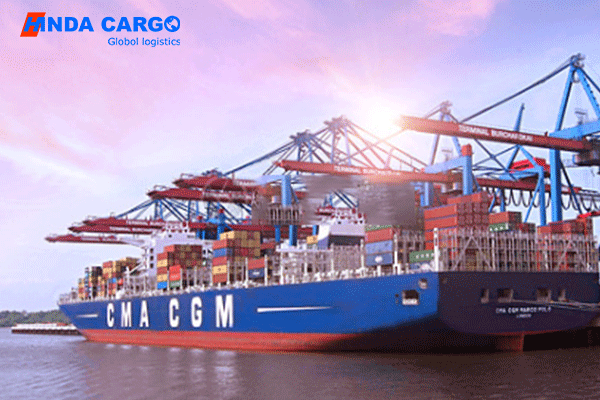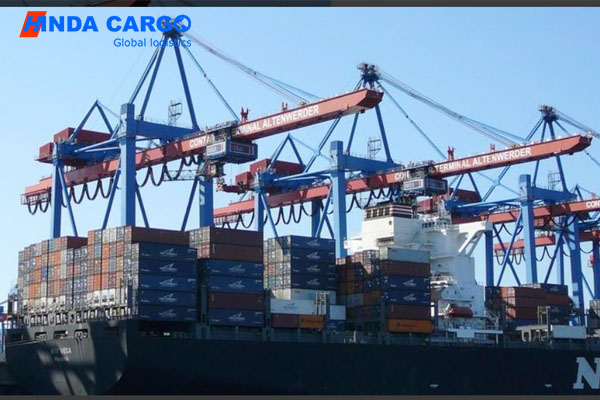What are the Pros and Cons of Freight Forwarding Companies?
Against the backdrop of globalization and the rapid development of international trade, freight forwarding companies have become an important link connecting the global market. They help companies and individuals achieve efficient transportation of goods by providing professional logistics services. However, freight forwarding companies also have some advantages and disadvantages in their operations. This article will delve into the Pros and Cons of freight forwarding companies to help readers gain a comprehensive understanding of this industry.

What are the Pros of Freight Forwarding Companies?
Pros of Freight Forwarding Companies:
● Professionalism and experience
● Resource integration capabilities
● Risk management
● Flexibility and customized services
● Cost reduction
1. Professionalism and experience
Freight forwarding companies have rich industry experience and expertise. They are familiar with international trade rules, customs regulations of various countries, and logistics processes, and are able to provide customers with professional advice and solutions. This professionalism helps customers avoid many potential logistics risks and troubles.
2. Resource integration capabilities
Freight forwarding companies provide one-stop logistics solutions by integrating various logistics resources, including sea, air, land, and multimodal transport. In this way, customers do not need to contact different transportation companies separately, and can enjoy comprehensive and efficient logistics services, saving time and costs.
3. Risk management
The international freight process is full of uncertainties, such as natural disasters, political risks, market fluctuations, etc. Freight forwarding companies usually have a complete risk management system. By purchasing freight insurance, real-time tracking of cargo transportation status and other measures, they help customers reduce risks and ensure that the goods arrive at the destination safely.
4. Flexibility and customized services
Freight forwarding companies can flexibly adjust transportation plans and logistics strategies according to the specific needs of customers. Whether it is special cargo transportation, emergency freight or customized logistics services, freight forwarding companies can provide personalized solutions to meet the diverse needs of customers.
5. Reduce costs
Through large-scale operations and resource integration, freight forwarding companies can obtain lower transportation costs and high-quality services. Customers can enjoy more competitive prices through freight forwarding companies, thereby reducing logistics costs and improving the market competitiveness of enterprises.

What are the Cons of freight forwarding companies?
Cons of freight forwarding companies:
● Cost issues
● Transparency issues
● Dependency issues
● Uneven service quality
● Legal and compliance risks
1. Cost issues
Although freight forwarding companies can provide one-stop logistics services, such services often require a certain agency fee. For some small and medium-sized enterprises and individual customers, these additional costs may increase their logistics costs.
2. Transparency issues
During the freight forwarding process, customers sometimes cannot directly grasp the real-time dynamics of the goods and specific logistics information. Some opaque operations and poor communication may cause customers to lose trust in freight forwarding companies and affect the cooperative relationship.
3. Dependence issues
When using the services of freight forwarding companies, customers often have a certain degree of dependence. Once the freight forwarding company has problems or the service quality declines, customers may face the risk of logistics interruption, affecting the normal operation of the business.
4. Uneven service quality
There are many freight forwarding companies in the market, and the service quality is uneven. Some small freight forwarding companies may not be able to provide high-quality services due to limited resources and experience, and may even have problems such as inadequate services and delays, affecting customers' logistics experience.
5. Legal and compliance risks
Freight forwarding companies must comply with the laws, regulations and industry standards of various countries during their operations. If the freight forwarding company violates regulations in certain links, it may cause customers to face legal risks and economic losses. Therefore, it is particularly important to choose a compliant and reputable freight forwarding company.

Application of freight forwarding companies in actual cases
Case 1: Cross-border transportation of electronic products
A Chinese electronic product manufacturer needs to ship a batch of high-value smartphones to the United States. Due to the high value of the products and the urgent need of customers, the manufacturer chose a professional freight forwarding company to handle the transportation.
Pros:
The freight forwarding company helped the manufacturer choose the fastest air transportation method and provided full tracking services to ensure the safe and timely arrival of the goods.
The freight forwarding company assisted in the customs declaration and insurance procedures, reducing the transportation risk and customs clearance time.
Cons:
Due to the selection of high-quality logistics services, the manufacturer needs to pay higher agency fees, which increases logistics costs.
Case 2: Furniture export
A furniture manufacturer in Italy needs to ship a batch of furniture to Australia. Due to the large size, heavy weight and no urgent need for furniture, the manufacturer chose a freight forwarding company to transport it by sea.
Pros:
The freight forwarding company provides one-stop logistics services, including warehousing, packaging, transportation and distribution, saving the manufacturer's time and energy.
By integrating resources, the freight forwarding company has obtained preferential transportation prices for the manufacturer and reduced logistics costs.
Cons:
During the sea transportation process, manufacturers cannot grasp the specific location and transportation status of the goods in real time, and there are certain doubts about the transparency of freight forwarding companies.
Conclusion
Freight forwarding companies play an indispensable role in international trade and logistics, and have many advantages such as strong professionalism, high resource integration capabilities, and perfect risk management. However, customers also need to pay attention to issues such as costs, transparency, and dependence when choosing a freight forwarding company.




